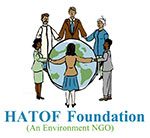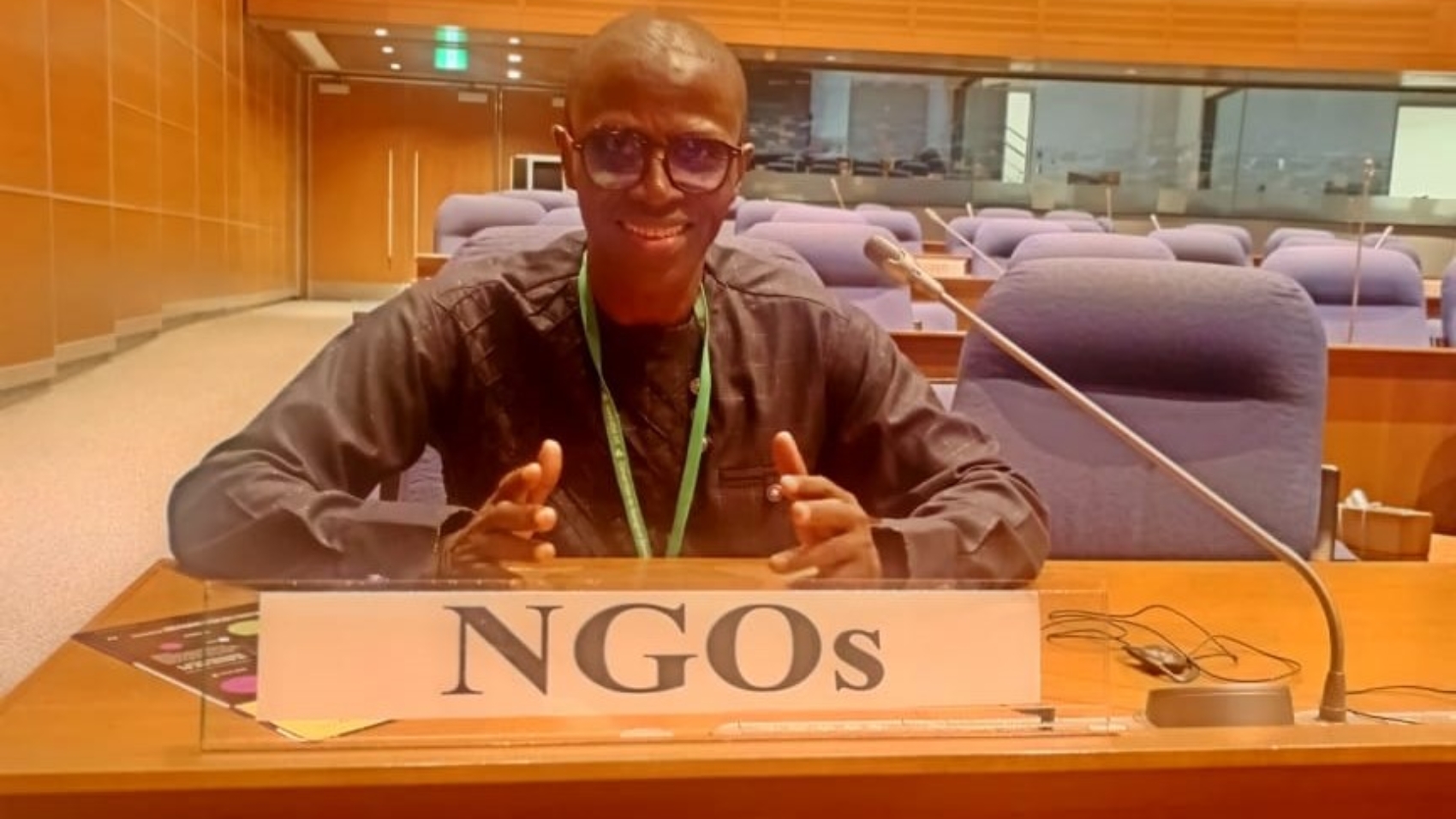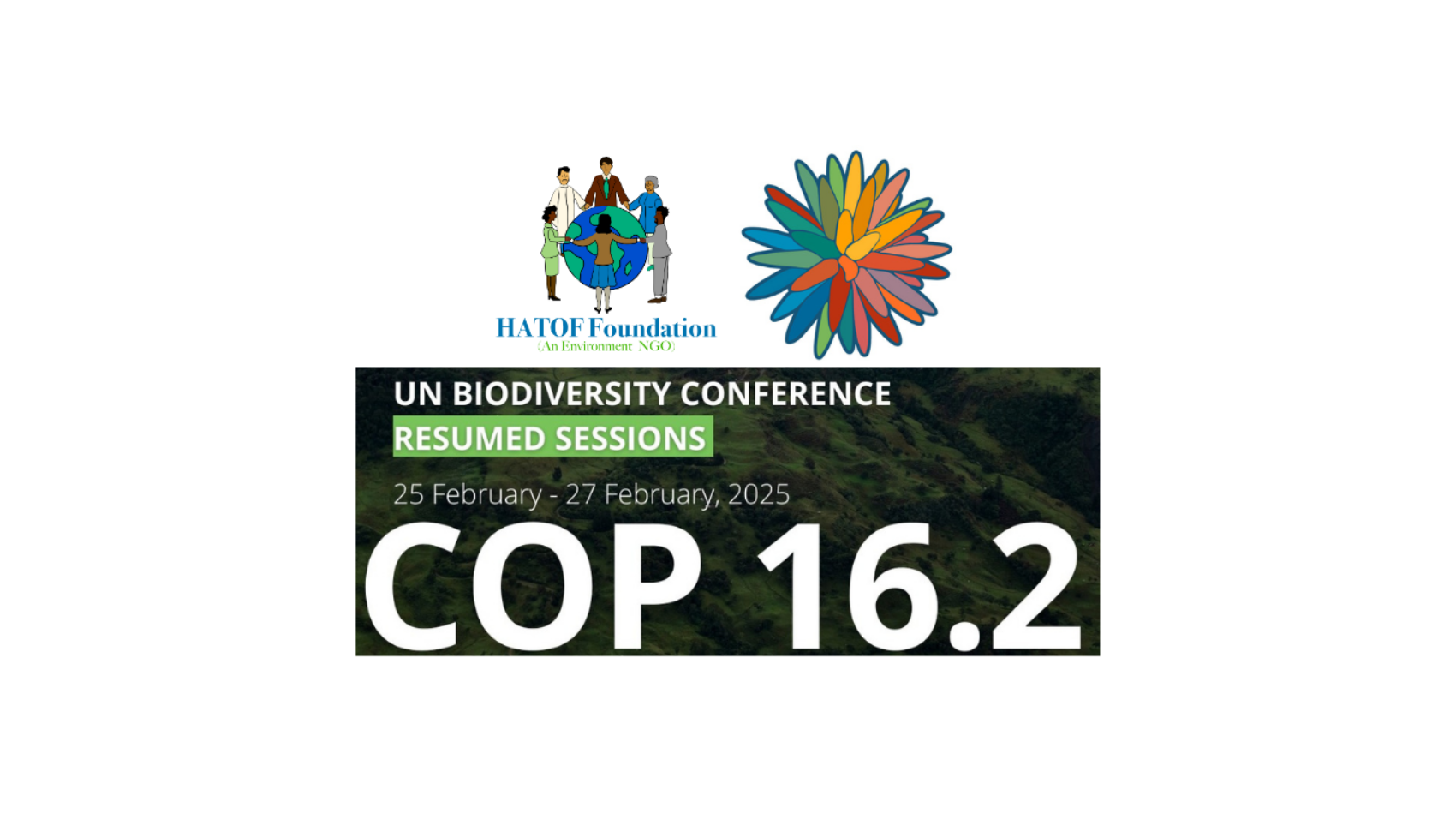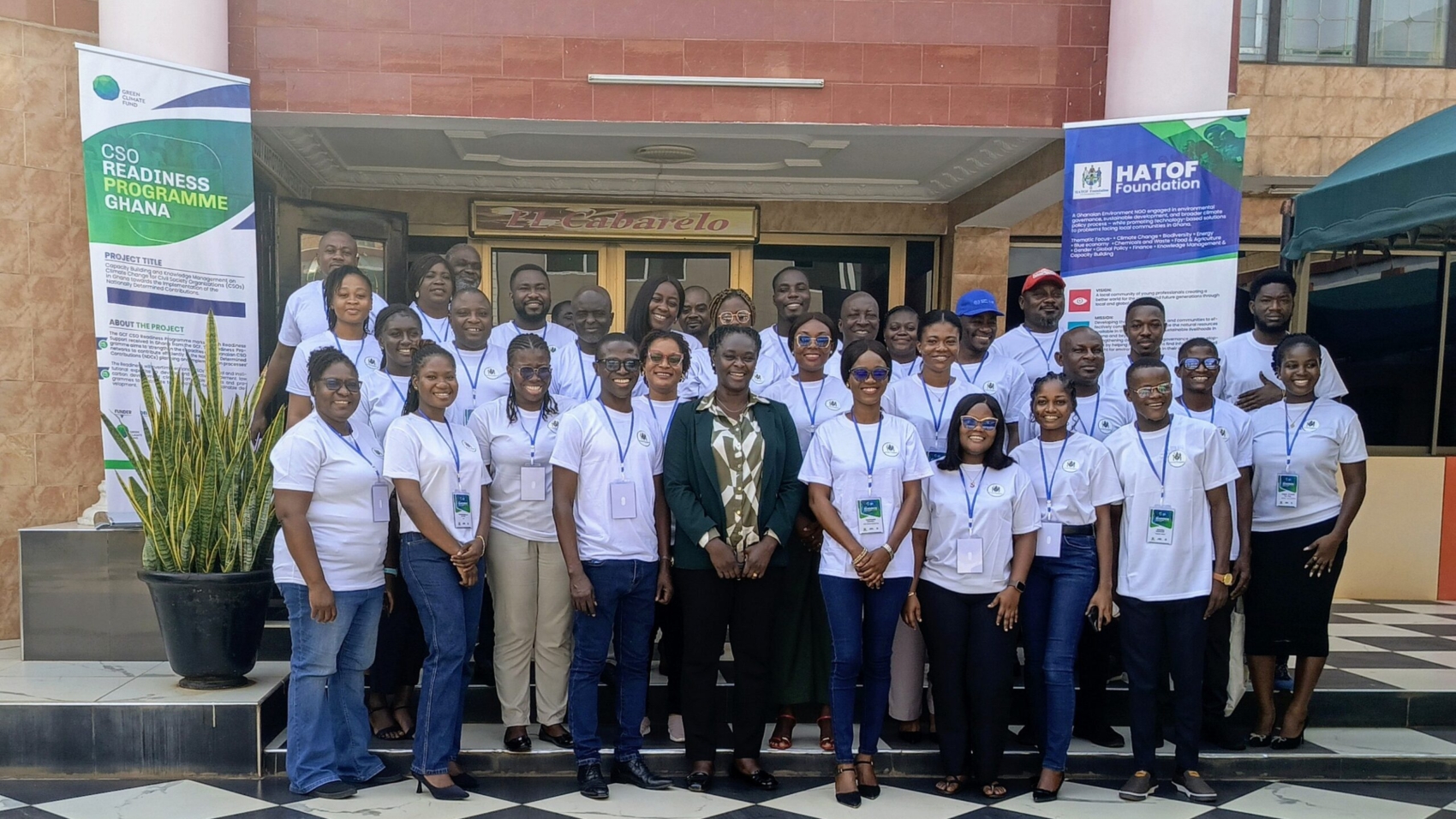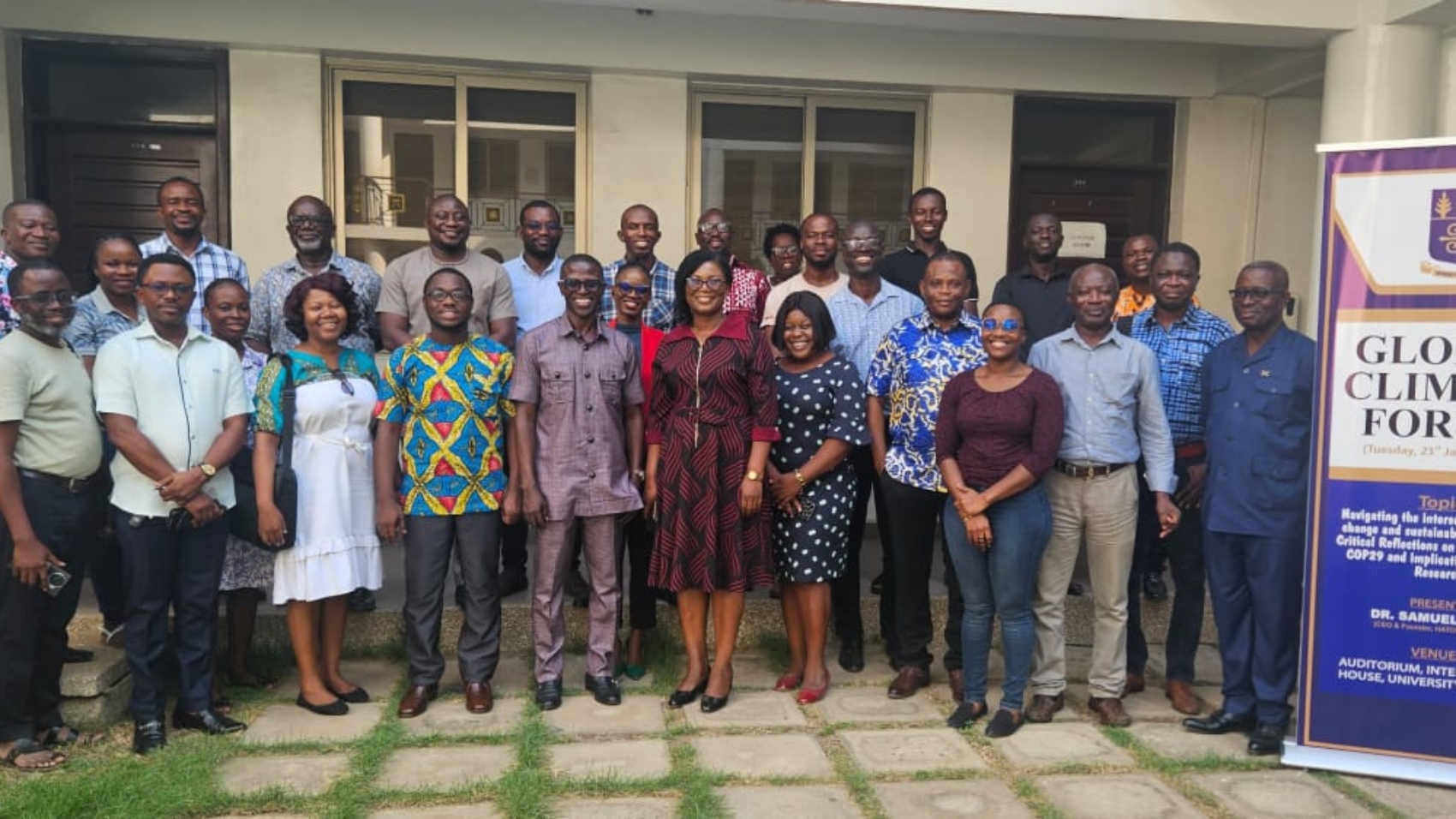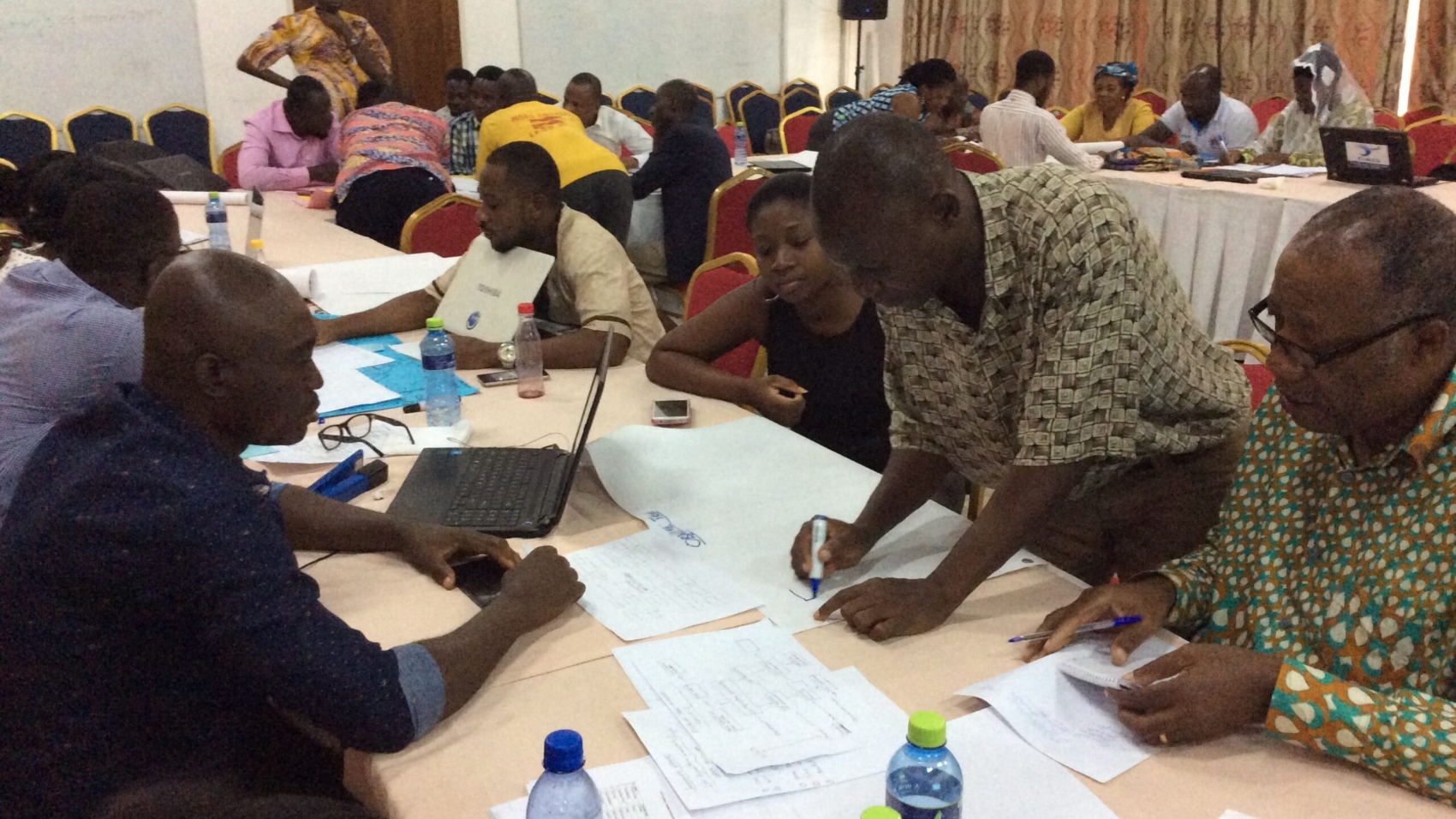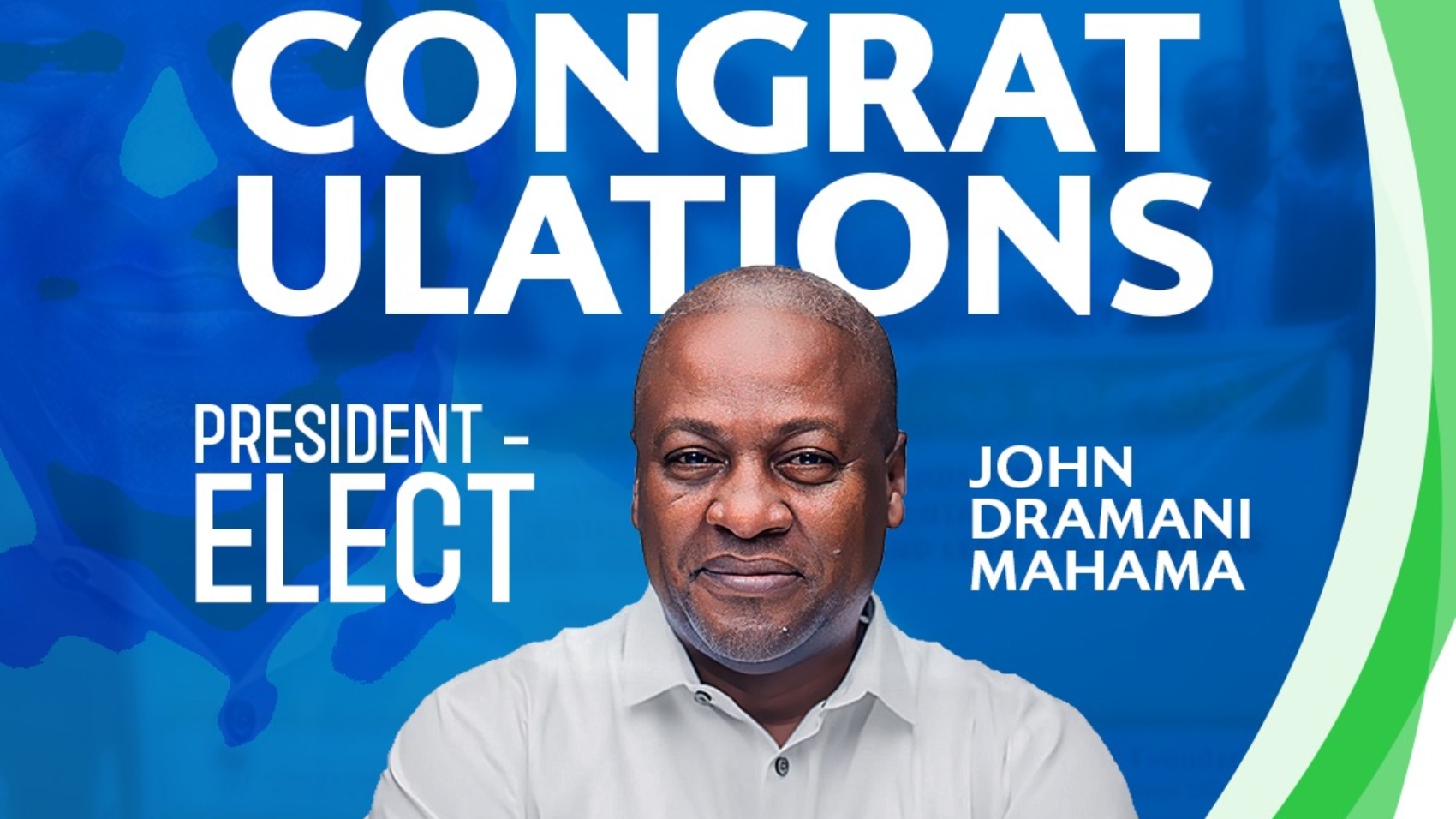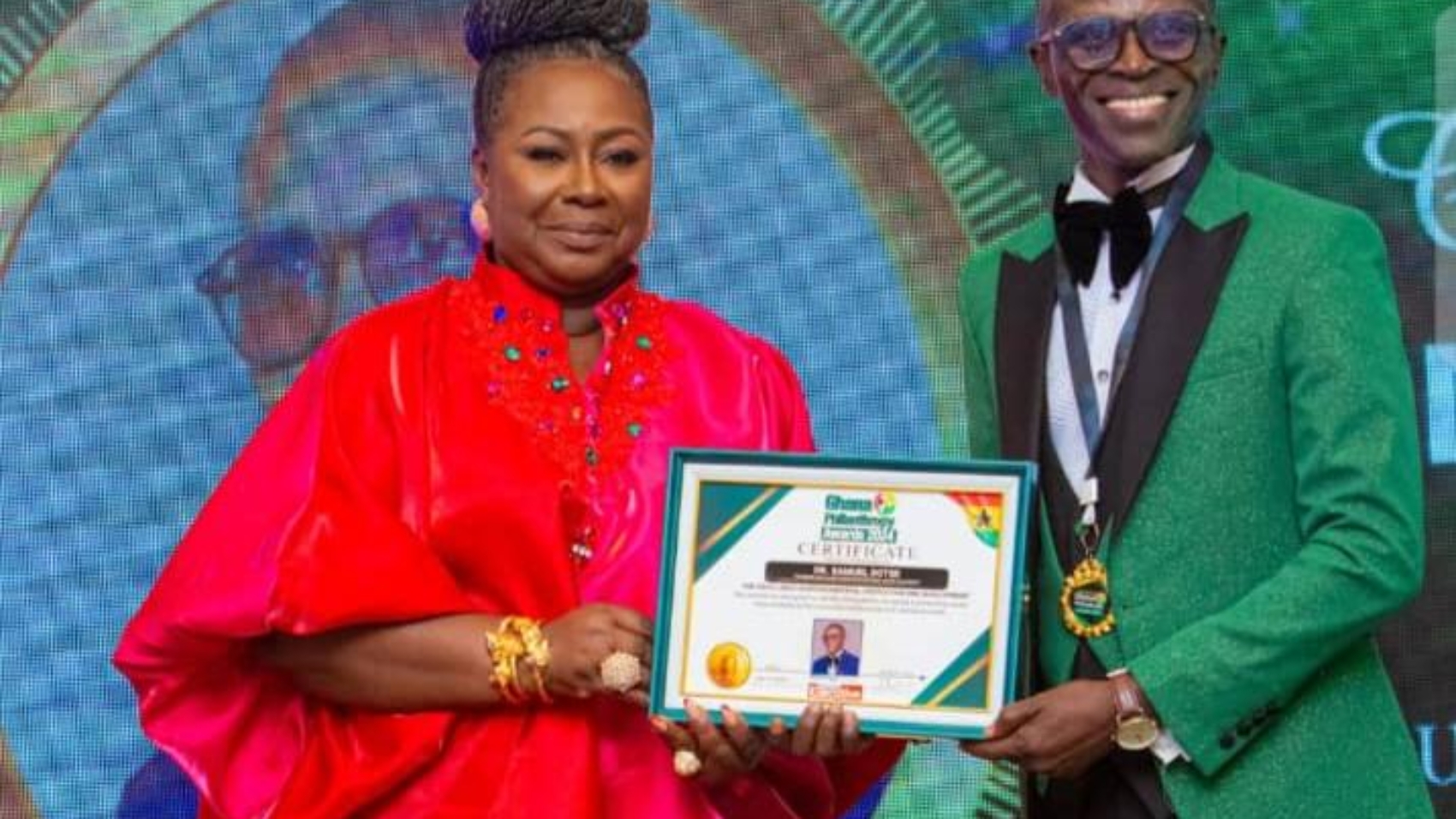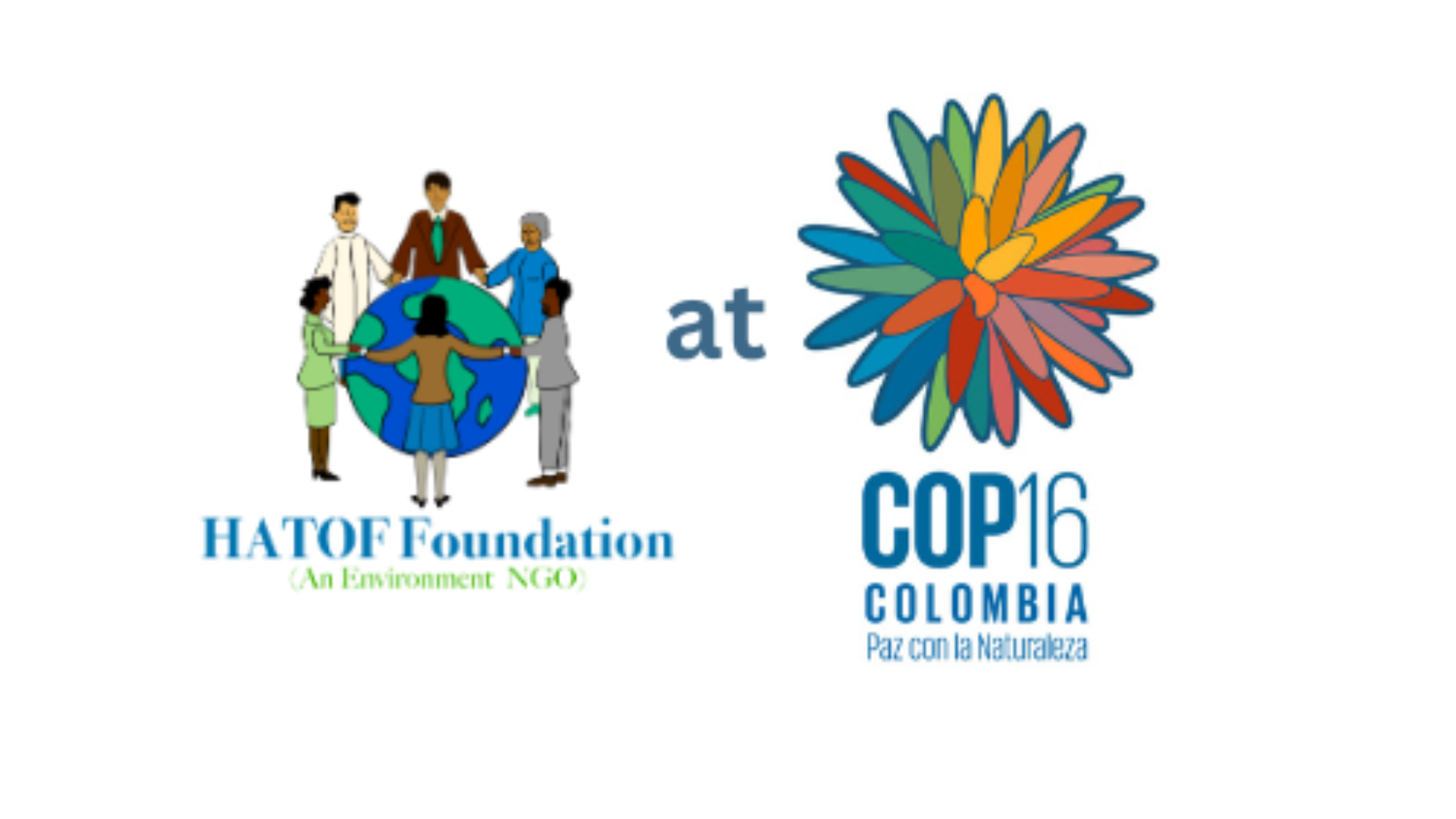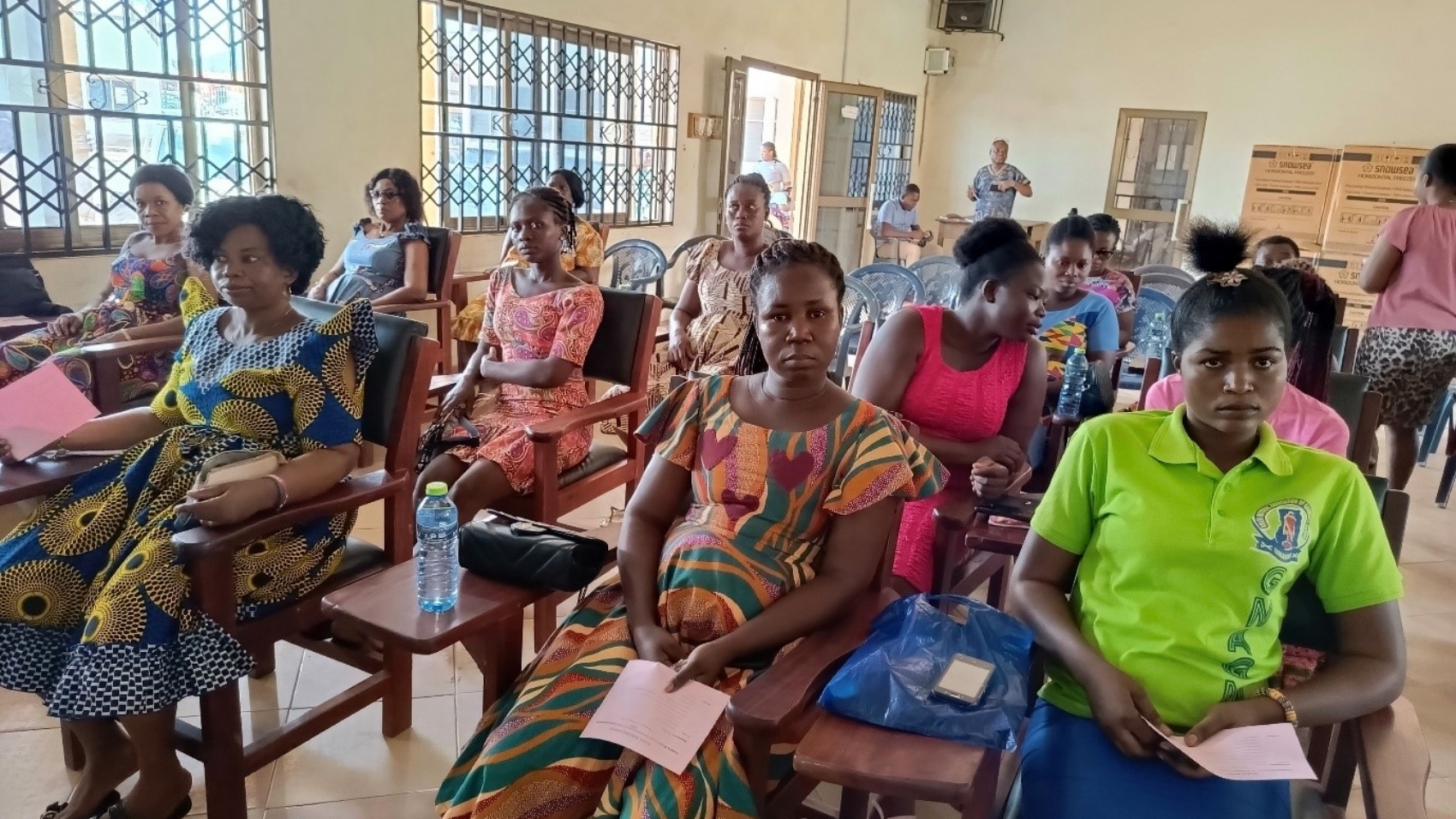Rome, 28 February 2025 – Dr. Samuel Dotse, the Chief Executive Officer of the HATOF Foundation, has welcomed the historic launch of the Cali Fund, a financial mechanism designed to ensure fair and equitable benefit-sharing from digital sequence information (DSI) on genetic resources.
This groundbreaking move took place on the sidelines of the resumed session of the 16th UN Biodiversity Conference in Rome, setting the stage for a more sustainable and cooperative approach to biodiversity protection.
The Cali Fund is set to receive contributions from private sector entities that use DSI for commercial purposes, representing a transformative shift in how biodiversity is financed. A key feature of the Fund is its commitment to direct at least 50% of its resources to Indigenous and local communities who are important stewards of the world’s biodiversity.
Dr. Samuel Dotse expressed his excitement at the launch, emphasizing the importance of compensating local communities for their ongoing contributions to biodiversity protection: “I am particularly excited about the Cali Fund seeing the light of day at this resumed session. Compensating local communities for their contribution to biodiversity protection is long overdue. With the launch of this Fund, our local communities, which are at the forefront of biodiversity protection, will receive support for their conservation efforts.”
The commitment to channel resources from the Cali Fund to local communities is a significant development in the evolving approach to biodiversity conservation. By securing funds from the private sector, the Fund represents a new frontier of biodiversity finance, ensuring that those closely connected to nature and land receive support for their invaluable role in safeguarding biodiversity for global benefit.
HATOF Foundation reaffirms its commitment to empowering local communities and advancing a more sustainable and suitable future for biodiversity protection.
Governments Unite to Mobilize Resources for Biodiversity Protection at the Resumed Session of the 16th UN Biodiversity Conference.
Rome, 28 February 2025 – Governments have agreed on a comprehensive strategy to secure the necessary funds for biodiversity protection and achieve the Kunming-Montreal Global Biodiversity Framework (KMGBF) targets. The agreement reached in Rome marks the successful conclusion of the 16th UN Biodiversity Conference of Parties (COP16), which resumed after being suspended in Cali, Colombia, in 2024.
The agreement focuses on a multi-faceted resource mobilization approach to closing the global biodiversity finance gap. This includes a commitment to mobilizing at least $200 billion annually by 2030, including $20 billion annually in international flows by 2025, rising to $30 billion by 2030. A key element is the establishment of permanent financial mechanisms to support the Convention on Biological Diversity, alongside improvements to existing financial instruments.
According to Susana Muhamad, COP16 President, discussions in Rome have demonstrated a strong commitment to advancing the Global Biodiversity Framework and creating lasting solutions for biodiversity protection.
Astrid Schomaker, Executive Secretary of the Convention on Biological Diversity, recognizes the crucial role of multilateral cooperation in achieving this goal.
The meeting also resulted in adopting a new Strategy for Resource Mobilization, tapping into diverse funding sources, including public finance, private investment, and philanthropic contributions. This strategy complements the ongoing work of the Global Environment Facility (GEF), which has already approved over $3 billion in support for biodiversity initiatives, leveraging an additional $22 billion in co-financing, including significant private-sector involvement. COP16 also agreed on key steps for ongoing collaboration and establishing a multi-year program of work, which will be discussed further at COP17. The global commitment to biodiversity, coupled with the development of new financial mechanisms and enhanced monitoring frameworks, provides a solid foundation for achieving the goals of the Kunming-Montreal Global Biodiversity Framework
HATOF Foundation COMMENCES A 16-DAY PROJECT PROPOSAL WRITING BOOTCAMP TO STRENGTHEN CAPACITY OF GHANAIAN CSOs
Accra, Ghana – February 19, 2025: The HATOF Foundation, with support from the Green Climate Fund (GCF) and the Ministry of Finance, is proud to announce the upcoming Proposal Writing Bootcamp as part of Ghana’s Green Climate Fund Civil Society Organizations (CSO) Readiness Programme. The first phase of the boot camp focused on the basic level, commenced on February 19-21, 2025, at Forest Hotel, Accra. The intermediate and advanced levels will continue and conclude in March 2025.
Over the past two decades, Ghana has made significant strides in climate change initiatives. However, technical capacity and coordination gaps have hindered the full engagement of Civil Society Organizations (CSOs) in critical climate project planning and implementation. The Green Climate Fund’s support aims to address these gaps by strengthening the technical and institutional capacities of Ghanaian CSOs, particularly in climate change adaptation, mitigation, and project proposal development.
The Proposal Writing Bootcamp will empower 40 representatives from 10 CSO networks to build the skills necessary for developing high-quality climate change proposals aligned with national policies and GCF criteria. Participants will better understand climate finance, national policies, and project design.
Workshop Objectives
To build the capacity of CSOs in Ghana to develop high-quality proposals for climate change projects, increasing their chances of accessing funding from the Green Climate Fund and other climate finance mechanisms. Specifically,
- Enhancing knowledge of climate change and Green Climate Fund policies.
- Developing practical skills in climate project development, implementation, and monitoring.
- Facilitating collaboration among stakeholders to support the implementation of Nationally Determined Contributions (NDCs).
Expected Outcomes:
- Increased understanding of global climate change, adaptation and mitigation concepts, national climate change policies and initiatives, and climate finance.
- Mastery of GCF, its policies and procedures (such as ESS, gender policy and action plan, monitoring, reporting and evaluation, compliant and grievance mechanisms, the NDA’s operations manual, and no-objection procedures.
- Strengthened capacity to develop bankable proposals for climate change funding, enhancing access to GCF and other financial mechanisms.
- Improved collaboration in planning and executing Ghana’s climate change initiatives and NDCs.
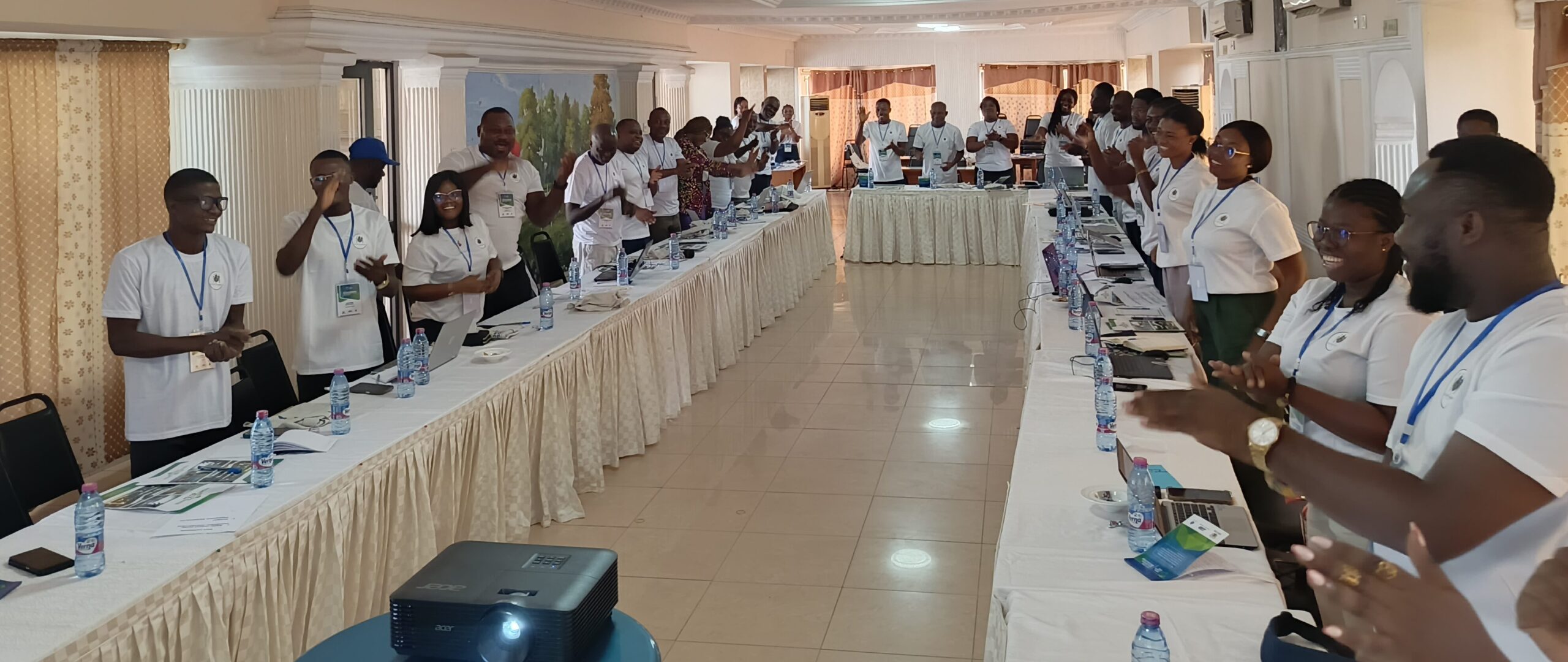
Training Areas:
- Understanding Multilateral Environmental Agreements
- The Rio Conventions and associated national policies, strategies, and plans
- Multilateral Financial Mechanism (i.e., Green Climate Fund (GCF), Global Environment Facility)
- Project Development, Implementation, and Monitoring
- Development of High-Quality Concept Notes
This initiative aligns with the broader goal of enhancing CSO engagement in national and international climate change efforts, ensuring that non-governmental actors contribute effectively to Ghana’s climate resilience strategies.
The Proposal Writing Bootcamp is pivotal to realizing Ghana’s climate ambitions and fostering a more inclusive, informed, and collaborative approach to climate change solutions.
For more information about the programme or to schedule an interview, please contact: [Ms. MaryJane Enchill on +233246346698 or [email protected]]
About the HATOF Foundation
The HATOF Foundation is a Ghanaian-based International environmental NGO promoting sustainable development and human well-being through policy advocacy and influence, capacity building, technical assistance, and project development and management in climate change and environmental sustainability. The foundation fosters collaboration and drives impactful climate action through strategic partnerships and training initiatives.
DR. DOTSE DELIVERS A KEYNOTE PRESENTATION ON GLOBAL CLIMATE FORUM
Accra, Ghana – January 21, 2025: Dr. Samuel Dotse, CEO of HATOF Foundation and a
climate change expert delivered a comprehensive presentation on the Global Climate Forum
at the Institute for Environment and Sanitation Studies (IESS) in Accra, Ghana.
Dr. Dotse’s presentation, titled “Navigating the Intersection of Climate Change and
Sustainable Development: Critical Reflections on the Outcomes of COP29 and Implications
for Future Research,” took the audience on a journey through the origin of climate change
negotiations, the objectives of the United Nations Framework Convention on Climate
Change (UNFCCC), and the Conference of Parties (COP) negotiation process.
He also explored the critical nexus between climate change and sustainable development,
highlighting the urgent need to rethink economic growth and ways to integrate scientific
research findings into national policy.
He emphasized that research needs to be conducted now, more than ever, to refine the
country’s climate modeling frameworks, inform Ghana’s negotiation position, and enhance
Intergovernmental Panel on Climate Change (IPCC) reports on Ghana and the continent.
Dr. Dotse’s presentation also delved into the outcomes of COP29, emphasizing the
implications for research and academic communities. His presentation was met with
enthusiasm and appreciation from the audience, comprising students, lecturers,
policymakers, and researchers across the country.
Emphasizing the need for collective action in addressing climate change, he invited students
and researchers to collaborate with the HATOF Foundation and explore opportunities for
mobilizing climate finance.
The HATOF Foundation is a Ghanaian-based international environment NGO promoting
sustainable development and human well-being through policy advocacy, knowledge
exchange, project management, capacity building and training, and technical assistance.
Call for Applications: 2025 HATOF Proposal Writing Bootcamp
HATOF Foundation is pleased to announce a call for applications for the 2025 Proposal Writing Bootcamp, designed to enhance the capacity of Ghanaian civil society organizations (CSOs) to access climate finance. The boot camp is a key component of the Green Climate Fund CSO Readiness Project for Ghana, implemented by the HATOF Foundation and the Ministry of Finance.
Objective:
The boot camp aims to build the capacity of CSOs in Ghana to develop high-quality proposals for climate change projects, increasing their chances of accessing funding from the Green Climate Fund and other climate finance mechanisms.
Eligibility Criteria:
- Be based in Ghana and employed in an NGO in climate change, biodiversity, sustainable land management, energy, agriculture, and water.
- Applicants must have at least a first degree.
Selection Criteria:
A total of 12 individuals will be selected for the boot camp based on their:
- Relevance of work experience to climate change and sustainable development
- Quality of expression of interest and employer’s statement
- Academic qualifications and achievements
Benefits:
- Enhanced capacity to develop high-quality proposals for climate change projects
- Increased chances of accessing funding from the Green Climate Fund and other climate finance mechanisms
- Networking opportunities with other CSOs and climate change experts
Bootcamp Duration: 1 month (February- March 2025)
Location: Forest Hotel, Accra
How to Apply:
- Download and complete the expression of interest and employer’s statement as their organization’s endorsement of the applicant.
- Attach the applicant’s CV.
- Submit the application package (expression of interest, employer statement, and CV) here
Application Deadline: February 5, 2025
For more information, contact [email protected] between now and January 31, 2025.
HATOF Foundation Congratulates John Dramani Mahama, President-Elect
PRESS RELEASE
HATOF Foundation Congratulates John Dramani Mahama, President-Elect
On behalf of the HATOF Foundation, I extend our warmest congratulations to you, H.E. John Dramani Mahama, for your election as the President of Ghana. Your resounding victory is a testament to the trust and confidence the people of Ghana have in your leadership and vision.
As you prepare to take on the mantle of leadership, we acknowledge the enormous responsibility ahead. We are confident that your administration will work tirelessly to address the challenges, including environmental degradation such as illegal mining, climate change, and biodiversity loss, and create a better future for all citizens.
HATOF Foundation looks forward to collaborating with your administration to mobilize climate finance, advance our shared goals, and promote the well-being of the Ghanaian people
Once again, congratulations on your election. We wish you wisdom, strength, and success as you embark on this noble journey.
We also commend the Vice president and flag bearer of the New Patriotic Party, Dr. Mahamadu Bawumia, for conceding defeat 14 hours after the close of polls. This is a show of statesmanship, and we wish him the best in future endeavors.
To the entire Ghanaian people, we thank you for conducting yourselves well despite the pockets of disturbance observed.
Overall, peace has prevailed.
God bless Ghana and make this nation great and strong.
Signed
Chief Executive Officer
Dr. Samuel Dotse
Dr. Samuel Dotse Honored at Ghana Philanthropy Awards for Excellence in Environmental Protection and Development
Accra, Ghana – November 11, 2024:
The Ghana Philanthropy Awards, held at the luxurious La Palm Royal Beach Hotel in Accra on Friday, November 8, 2024, recognized outstanding contributions to various social causes.
The Founder and Chief Executive Officer of HATOF Foundation, Dr. Samuel Dotse, emerged as a winner in the Environmental Protection and Development category, joining an esteemed group of 50 awardees from diverse fields.
The prestigious awards ceremony celebrated the selfless efforts of individuals and organizations that positively impacted Ghana. Categories included Health Care Support, Youth in Development, Climate Change, Sustainable Development, Education, and Women Empowerment.
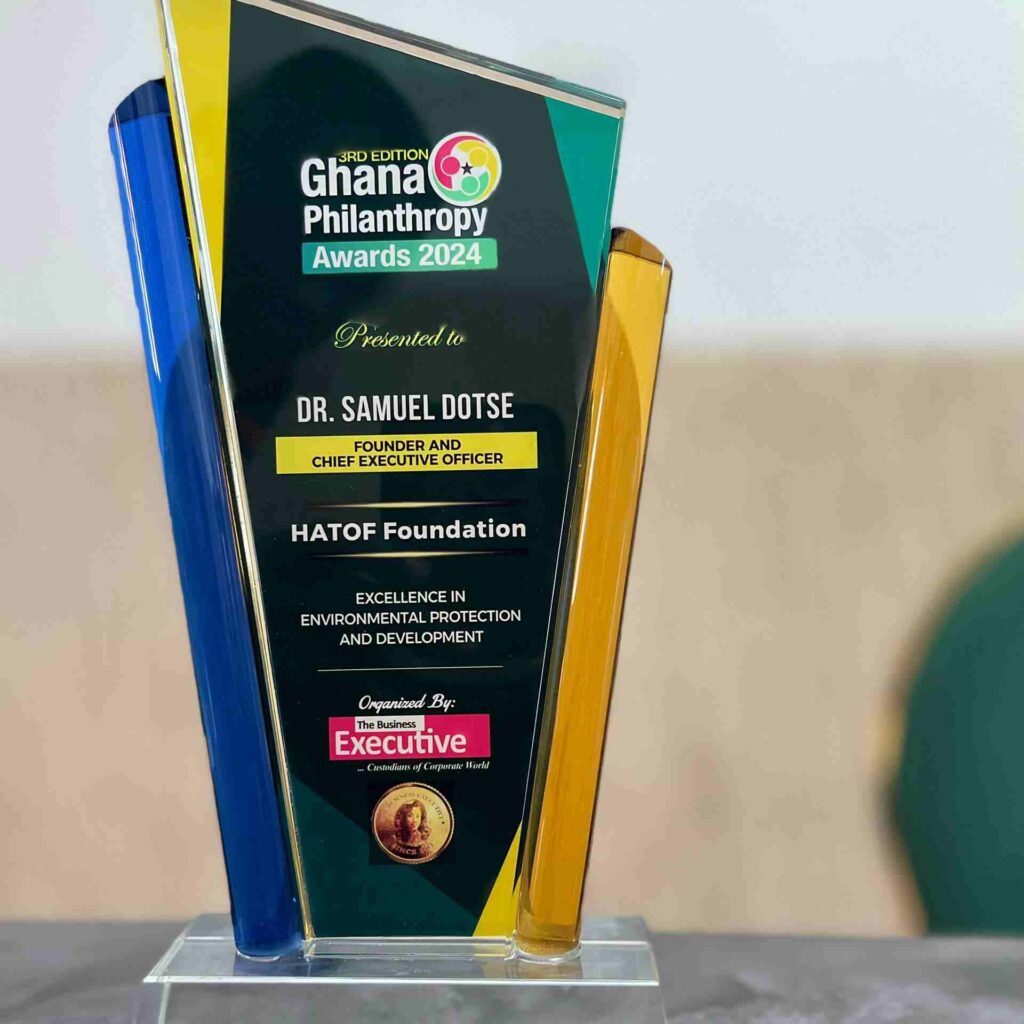
Dr. Dotse’s award acknowledges his tireless dedication to environmental conservation and sustainable development. His work has significantly promoted eco-friendly practices, supported community-led initiatives, and advocated for climate action.
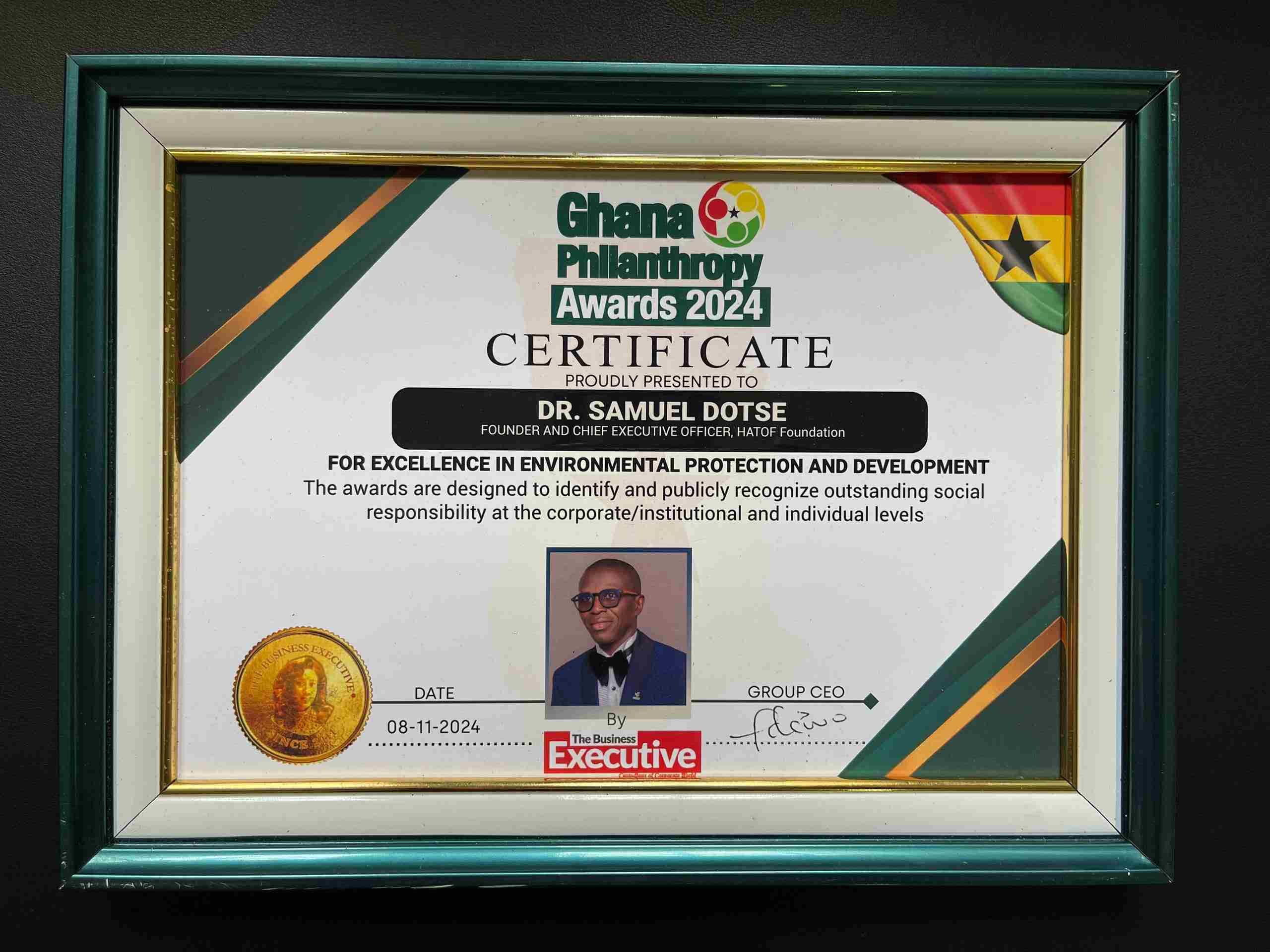
Speaking to the media, Dr. Dotse expressed his humility by the recognition. He said, “I am humbled by this recognition. This award is not just a personal honor but a testament to the collective efforts of my team, partners, and supporters. Together, we can create a greener, more resilient future for all.”
The Ghana Philanthropy Awards aim to inspire and encourage philanthropic endeavors, fostering a culture of giving and social responsibility.
The event brought together philanthropists, business leaders, government representatives, and civil society organizations.
Other categories included:
- Innovative Leadership in Social Change
- Excellence in Health Support and Sustainability
- Corporate diversification and Inclusivity
- Sustainable Development Practices
- Community Empowerment and Sustainability
- Innovative Educational Impact
- Community and Local Business Growth
The Ghana Philanthropy Awards have become a benchmark for excellence in social impact, recognizing the unsung heroes driving positive change in Ghana.
Highlights of the First Week of the Sixteenth Conference of Parties (COP16) to the Convention on Biological Diversity Negotiations in Cali, Colombia.
October 28, 2024, Cali, Colombia – Yesterday, October 27, 2024, marked the end of the first week of the two weeks of negotiations on the Convention on Biological Diversity (CBD) in Cali, Colombia, and the stakes are already very high.
The main issues discussed at the COP, among other things, have been:
- finalization of the multilateral mechanism for fair and equitable sharing of benefits from Digital Sequence Information (DSI) on genetic resources,
- mobilization of biodiversity finance,
- integration of climate change and biodiversity and
- recognition and leveraging the contribution of Indigenous people and local communities to biodiversity conservation.
The first week was already characterized by contentious positions and disagreements, particularly on lack of clarity on what constitutes DSI, the scope of biological information DSI should cover, and how to address the potential conflict between DSI-related patents and traditional knowledge rights, as well as how to distribute monetary and non-monetary benefits derived from DSI data fairly.
Another bone of contention is securing sufficient funding and distributing it to developing countries to protect their diverse ecosystems. Some developing countries have clashed over the future of the Global Biodiversity Framework Fund (GBFF), created two years ago in Montreal, Canada, in 2022.
These biodiversity-rich nations believe that the current architecture of the GBFF puts them at a disadvantage. Hence, they want the GBFF replaced with a new Fund that balances the governance arrangement to give them equal representation and easier access to the fund and its resources.
As the first week of the negotiations ends, the stage is set for intense discussions in the second week. The arrival of ministers of state in the coming days will likely bring increased pressure to resolve these differences.
The high-level segment is scheduled for October 29-30, and ministers will join the negotiations, bringing their countries’ positions to the table. The outcome of these negotiations will be crucial in determining the success of COP 16 and the future of biodiversity conservation.
With over 15,000 delegates from almost every country, this two-week meeting is crucial for implementing the Kunming-Montreal Global Biodiversity Framework (KMGBF) adopted in 2022 at COP 15 in Montreal, Canada.
The KMGBF is the landmark global biodiversity plan that aims to address the alarming rate of biodiversity loss while promoting sustainable development. It sets four (4) ambitious goals and 23 targets for 2030, including protecting 30% of the world’s land and seas, reducing harmful subsidies, and restoring degraded ecosystems.
World leaders emphasized urgent collective action to protect biodiversity under the theme, “Peace with Nature,” at the conference’s opening on October 20, 2024, in Cali, Colombia.
Typical of all conferences, the opening witnessed many statements, including UN Secretary-General Antonio Guterres’s admission that nature must flourish for humanity to thrive.
The Executive Secretary of the Convention on Biological Diversity, Astrid Schomaker, admonished the global community to “seize the moment to ensure that biodiversity is not just preserved but also restored and valued for the crucial role it plays in sustaining life on Earth.”
Optimistic about the conference’s success, the Minister of Environment and Sustainable Development in Colombia, H.E. Susana Muhamad, was hopeful that the conference would bring concrete actions to fulfill the Kunming-Montreal Global Biodiversity Framework (KMGBF).
HATOF looks forward to COP16 adopting an ambitious decision on how the multilateral mechanism for the fair and equitable sharing of benefits arising from using digital sequence information (DSI) of genetic resources should operate, including creating a dedicated fund to collect and disburse the generated resources. We are also keen to understand better what constitutes non-monetary benefits from DSI.
HATOF CONDUCTS TRAINING FOR HOHOE SMES ON ADAPTING TO CLIMATE CHANGE IMPACTS
Available statistics indicate that the primary economic activities in Hohoe Municipality are agriculture, forestry, fisheries, wholesale and retail trade, and manufacturing, which collectively employ 70% of the local population.
However, Small and Medium Enterprises (SMEs) in the area are increasingly threatened by climate change. These threats could lead to business failures and exacerbate local poverty if left unaddressed.
In response, the HATOF Foundation conducted a training workshop on August 14 and 15, 2024, for SMEs in Hohoe Municipality, focusing on how to adapt to the impacts of climate change. This initiative aimed to enhance the skills of local business owners to mitigate the risks posed by climate change effectively.
The workshop attracted over fifty participants from various sectors, including beauty, fashion design, hospitality, and small-scale trading. Attendees learned about climate change, its causes, effects, and implications for their businesses.
The facilitator, Ms. MaryJane Enchill, also outlined three types of climate-related risks: physical risks (such as floods, droughts, and wildfires), transition risks (increased costs due to climate regulations), and liability risks (stemming from non-compliance with evolving legal standards).
Despite the challenges presented by climate change, it was emphasized that there are also opportunities for SMEs. Sectors like agribusiness, retail, food and beverage, and handmade products can leverage climate change to create new business growth, generate jobs, and stimulate economic revitalization.
The workshop concluded with the recognition that every business faces some physical, transitional, or liability risk.
While regulatory concerns may affect some, the potential for asset loss due to physical threats is significant.
SMEs are encouraged to incorporate climate risk considerations into their business plans, conduct regular impact assessments, and collaborate with insurers and local governments to manage these risks effectively.
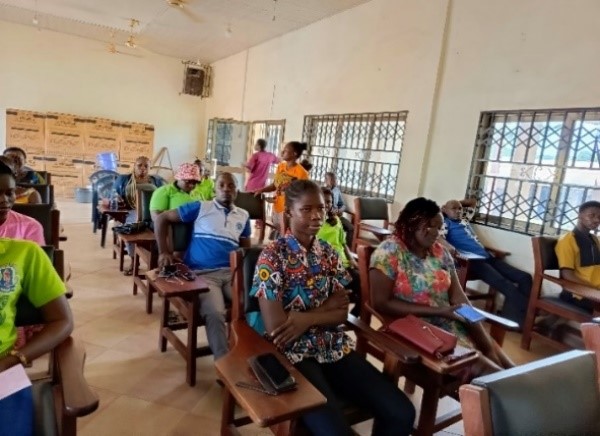
HATOF Foundation at WGDSI-2: Advancing Benefit-Sharing Mechanisms For Digital Sequence Information
From August 12 to 16, 2024, the HATOF Foundation, represented by the Chief Executive Officer, Dr. Samuel Dotse, is actively participating in the Second Meeting of the Ad Hoc Open-ended Working Group on Benefit-sharing from the Use of Digital Sequence Information (DSI) on Genetic Resources (WGDSI-2), which is being held at the ICAO Conference Centre in Montreal, Canada.
This pivotal meeting brings together international delegates and stakeholders to advance discussions on the multilateral mechanism for benefit-sharing from the use of DSI on genetic resources.
This mechanism, established under Decision 15/9 of COP 15 and part of the Kunming-Montreal Global Biodiversity Framework (KMGBF), includes a global fund designed to ensure fair and equitable sharing of benefits.
Key agenda items for WGDSI-2 include:
Development of the Multilateral Mechanism: Deliberations focus on the operational aspects of the mechanism and the associated global fund, as outlined in document CBD/WGDSI/2/2. This involves setting practical modalities for payments, disbursements, and management of the fund.
Technical Insights and Policy Options: Participants will review summaries from Mphatso Kalemba (Malawi) and William Lockhart (United Kingdom), alongside executive summaries of studies commissioned by the CBD Secretariat, providing crucial insights for shaping the multilateral mechanism.
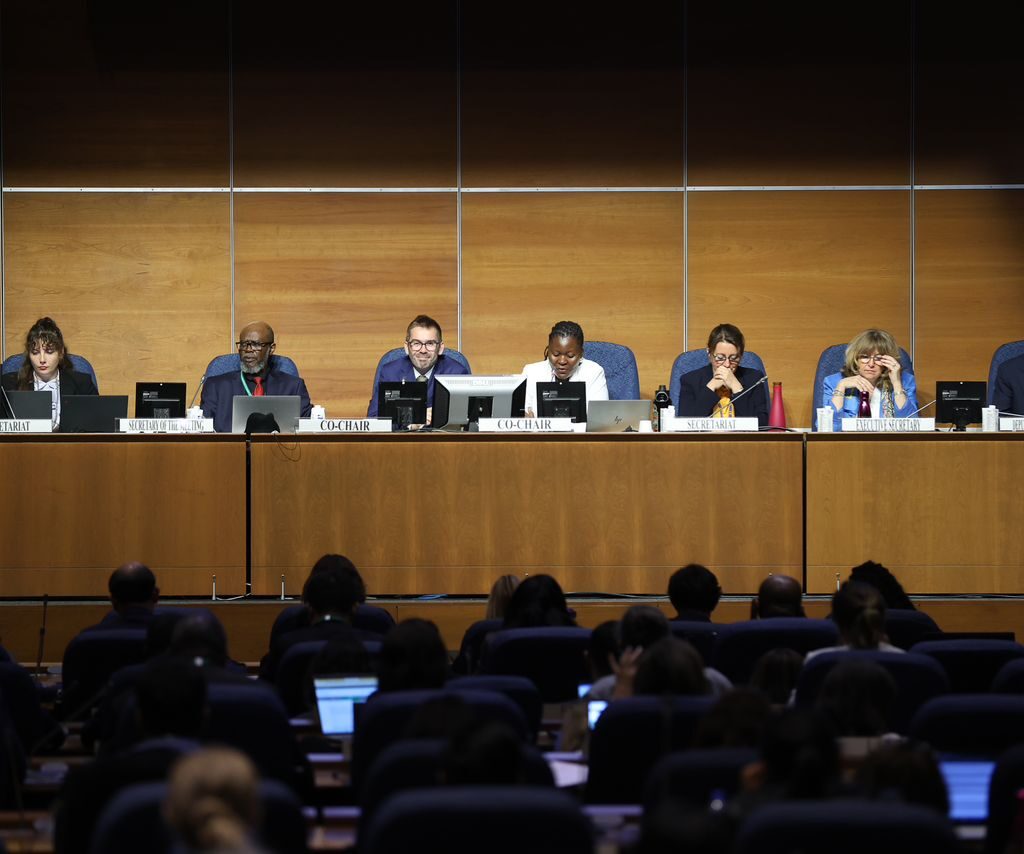
What is at stake?
The multilateral mechanism, including the global fund, is expected to achieve several key objectives:
Provide a Multilateral Solution: The mechanism will offer policy guidance on the fair and equitable sharing of benefits from the use of digital sequence information on genetic resources, ensuring that the process is transparent and inclusive.
Bridge Gaps in Science and Technology: The mechanism is anticipated to generate non-monetary benefits, such as capacity-building, development, and technology transfer, which will help bridge scientific, technical, and technological gaps in how DSI on genetic resources is accessed and utilized globally.
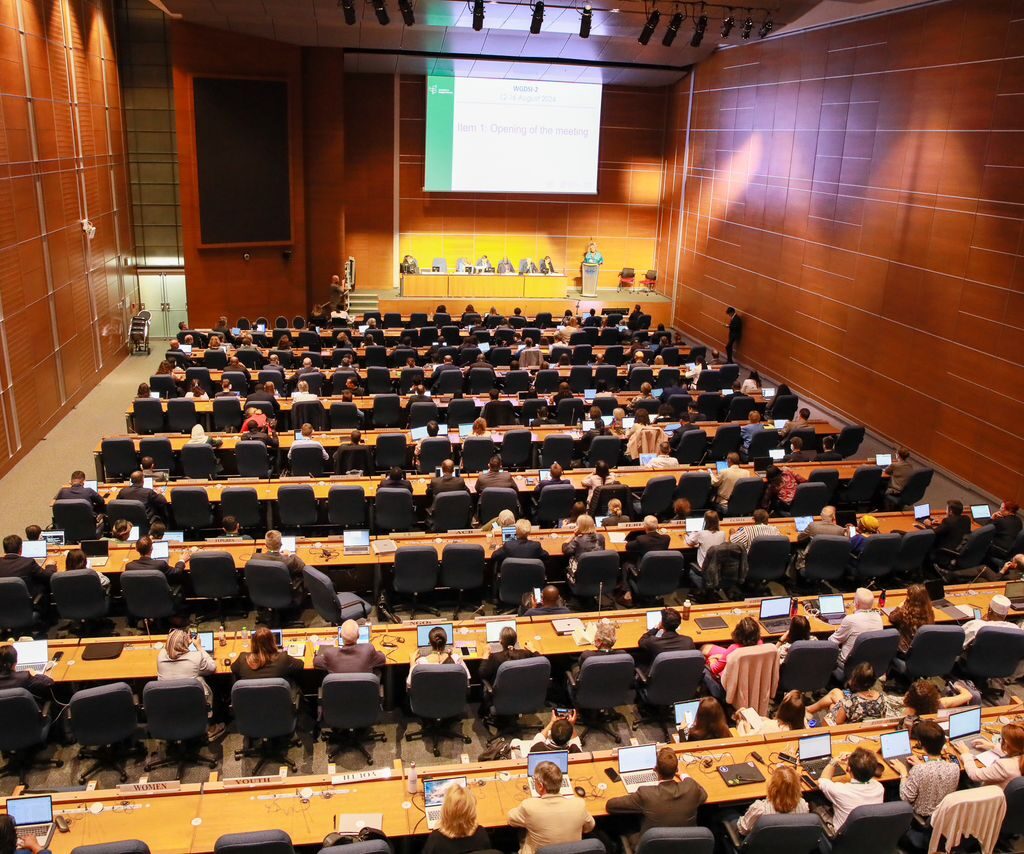
Mobilize New Funding for Biodiversity Conservation: The establishment of the global fund is expected to mobilize new streams of additional funding that will be channelled towards biodiversity conservation, contributing to the sustainable use of genetic resources.
The HATOF Foundation’s involvement underscores our commitment to promoting equitable benefit-sharing and enhancing global capacity for biodiversity conservation.
We are engaging with various stakeholders to ensure that the interests of developing countries and local communities are well represented in these crucial discussions.
